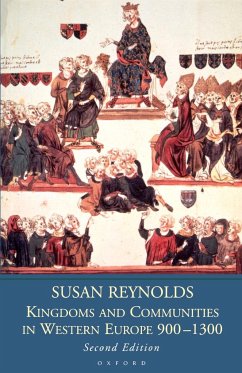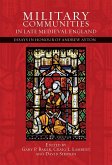This study is an exploration of the collective values and activities of lay society in Western Europe between the tenth century and the thirteenth. Arguing that medieval attitudes and behaviour have too readily been defined in terms of hierarchical structures of government, clerical thought, or narrow notion of kinship, the author instead places new emphasis on the horizontal bonds of collective association which permeated society in medieval England, France and Burgundy, Germany, the Netherlands, and Italy. By refocusing on the social and political values that characterized lay collective activity, this book offers a stimulating new approach to the history of medieval Europe. The second edition of this important study incorporates a substantial new introduction, which amplifies the arguments of the original edition and takes account of recent research. ON THE FIRST EDITION 'all students of the Middle Ages and of collective organization will be indebted to Reynolds for this rich and original book. It will be a starting-point for discussion and the reference point for information', Times Literary Supplement.
This wide-ranging and perceptive book focuses on the collective values and activities of lay society over several centuries, from trade guilds and manor courts to the development of parliaments and the rule of feudal monarchs. It offers a new approach to the history of medieval Europe. The second edition of this important study incorporates a substantial new introduction, which amplifies the arguments of the original edition and takes account of recent research.
This wide-ranging and perceptive book focuses on the collective values and activities of lay society over several centuries, from trade guilds and manor courts to the development of parliaments and the rule of feudal monarchs. It offers a new approach to the history of medieval Europe. The second edition of this important study incorporates a substantial new introduction, which amplifies the arguments of the original edition and takes account of recent research.








